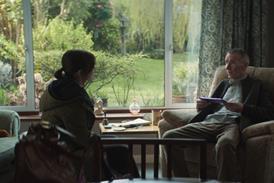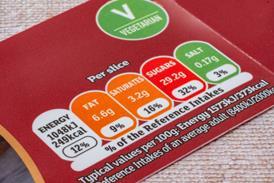Protection is a key concern for most convenience store retailers. Protecting their profits, their safety, the local communities in which they serve, the list goes on. But protecting the environment, it’s fair to say, is not one that makes the priority list that often.
However, when the local people of Lodsworth, an ancient village within a designated conservation area of West Sussex, decided to build a new community-owned store, protecting and preserving the environment in which it would trade was the overriding concern.
The idea to build the shop came about at the beginning of 2009 when, after more than 20 years of putting up with a 15-mile round trip to buy a pint of milk, the local people finally decided that enough was enough.
However, with Lodsworth boasting more grade I and II listed buildings than anywhere else in Sussex, and with the surrounding countryside classed as an Area of Outstanding Natural Beauty, the design and build of the store was never going to be easy.
“Being green and kind to the environment was at the heart of all our plans from the very start,” says Martin Lester, a dedicated volunteer and vice-chairman of the Lodsworth Larder management committee. And we’re not just talking green products and Bags For Life; everything in the Lodsworth Larder, from the recycled content of its foundations, to the locally sourced western red cedar shingles which clothe its roof, is environmentally sound, not to mention unspeakably beautiful.
The design for the store was dreamt up by local woodsman and now TV star Ben Law, who enthralled millions when he built his own roundwood timber frame house on Channel 4’s Grand Designs programme and won the coveted Best Grand Design award for his efforts.
His store design, which used sustainably sourced wood from local trees and came in at a quarter of the cost of an earlier proposal, immediately captured the hearts and minds of the local people, and the all-important grant providers.
“Ben had actually agreed to underwrite the bill if the funding didn’t appear, but the fact that it was an eco-build helped to tick all the right boxes when it came to applying for grants, so securing funding wasn’t an issue at all,” adds Martin.
Grants were awarded by various sources including the Plunkett Foundation, The Big Lottery, The South Downs Sustainable Development Fund, and West Sussex County Council. More than 12,000 shares in the store were snapped up eagerly by local people, so that in very little time there was enough money in the pot (£160,000 to be precise) for work to begin.
It was agreed that the store would be built in the car park of the local pub, the Hollist Arms, as this was central to the village and avoided encroaching on the picturesque landscape. It did mean, however, that space was restricted.
With the building process involving a vast amount of skilled craftsmanship, warm dry weather was of the upmost importance. But despite fervent prayers for sun, the summer of 2009 turned out to be a wet one. The unseasonable weather did a good job of leaving the building team (many of whom were local apprentices) a little soggy around the edges, but it didn’t come close to dampening spirits, and just four months after the first footings were dug, the store was complete.
More than five different types of local wood were used, making the finished store a veritable shrine to local sourcing and a shining example of sustainable building methods. The floors are made of oak taken from a local wood, which was replanted with new saplings; the cladding came from a derelict hazel coppice; the beams from sweet Chestnut trees from Ben’s own wood; and the wall plates from a managed plantation of larch trees.
All wood was also milled locally, meaning that no plank travelled further than two miles from root to roof a huge saving in road miles and CO2 emissions, one of the store’s main aims. And, of course, by its very existence the store is helping to cut C02 emissions as people no longer have to make that arduous car journey to the nearest town for essentials.
As you might expect, local produce is a major focus of the store’s offer, sitting alongside a tight range of national brands.
“Booker is great for delivering our key branded goods, but wherever possible we try to source products locally,” explains Martin. “It’s better for the local economy and also local suppliers don’t demand minimum orders like some of the larger suppliers do. It’s also better from a wastage point of view. By ordering in smaller quantities we don’t end up with large piles of food waste, which can be a big problem for other retailers.”
What food waste the store does produce is also disposed of in a green manner. “The vast majority of it is composted or used to feed the local pigs,” adds Martin.
And it’s not just food waste that’s disposed of with the environment in mind. The staff toilet has an integrated basin which, once you get over the initial shock, is really rather clever. After flushing, clean water rushes through a small tap on top of the toilet and into the sink above the cistern, before filling the cistern again. So not only has the little loo helped halve water consumption, but it’s also helped to save space, which when you have less than 850sq ft to play with is important.
The space restrictions also meant that the store needed to be built on two levels, with the stock room above the shop floor a logistical problem at the best of times, but one which is made considerably worse when the only way up to said stockroom is on a winding wood staircase. But here again the designers have come up with an ingenious solution. Thanks to a large rope hoist which looks like something out of the Middle Ages, stock is winched up to the first floor through a hatch at the rear.
Taking a trip around the exterior of the store also reveals another of its environmentally friendly facets. Large solar photovoltaic panels on the roof are used to generate some of the store’s electricity, helping to shave a substantial amount off bills. “Since we started trading six months ago we have already saved 419KW of electricity, which amounts to a financial saving of £180,” explains Martin.
Energy usage is also kept to a minimum through efficient LED lighting and the use of a heat reclaim system which enables heat from the fridges to be fed into a changer and pumped into the shop.
However, with more than eight inches of local sheep’s wool insulating the store’s walls, there was barely any need for heating in the freezing winter months. “We couldn’t believe how snug it was in here, even without the heat exchanger on. The locals loved coming in here on the freezing winter mornings and cold nights.”
The store also functions as a much needed drop-off and collection point for deliveries and third-party postal services, and the local people of Lodsworth enjoy congregating in their wonderful new store so much that Martin and the team have recently installed a computer complete with free internet access so that people can come in to shop and surf. “Once a midwife who was on her way to a home birth came rushing in because she couldn’t find the address,” laughs Martin. “She was so grateful that we had the internet up and running!”
So what does the future hold for this green goddess of a store? Well, Martin wants to install a larger fridge so that it can carry a larger chilled range, and after that it’s up to the locals. “The whole point of this store is to serve the needs of the people of Lodsworth. We will buy and do whatever they want us to; it’s their store.”
The team will also have to keep on recruiting volunteers to man the store on a weekly basis. However, with its chocolate box setting, charming appearance and real point of difference, this is unlikely to be a problem.
















No comments yet